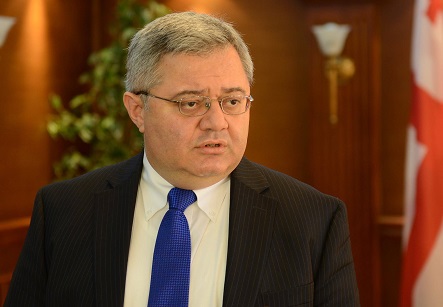Georgia’s Parliament announces competition for two members of new Prosecutorial Council

The hunt is on to find two people to become members of the 15-seat newly-established Prosecutorial Council, which plays a major role in the selection of the country’s Chief Prosecutor.
Today Georgia’s Parliament Speaker David Usupashvili announced a competition to find two new Council members; the candidates should be selected from civil and academic fields.
Usupashvili stressed Georgia’s tertiary educational institutions, the Bar Association of Georgia and non-commercial legal entities should each nominate their chosen candidate to Parliament before October 16.
Nominees must have a tertiary qualification in the legal field – either a Masters’ degree or equivalent, have no less than 10 years’ experience in the judicial sector and a good working reputation.
Organisations should also offer a recommendation letter about their candidate, including their biographies, copies of identification papers and documents confirming their qualification.
No more than three candidates should be presented to Parliament, said Usupashvili. If Parliament failed to approve two candidates – at least 76 of 150 votes are required – the selection process will begin again.
On September 18 this year Georgia’s Parliament passed a bill at its final reading that introduced new, more complex rules of selection and electing a Chief Prosecutor for a non-renewable six-year term. The bill outlined creation of a 15-member Prosecutorial Council, chaired by the Minister of Justice.
Eight members of the Council will be prosecutors elected by the Conference of Prosecutors, which was also a new structure suggested in the bill.
Members of Parliament (MPs) will take two seats; one from the majority and one from the opposition, two seats would also be held by judges of the High Council of Justice.
One seat will be held by a civil society representative and another from the academic sector – hence the new competition.
For the final position, the Justice Minister must select three candidates then present them to the Prosecutorial Council for approval. The Council must approve one candidate by voting; the successful nominee must gain two thirds of support.
If this failed, the Justice Minister will be required to name three other candidates. However, if selected, the chosen candidate will go before the Government for approval.
If the candidate is disliked, the process of selecting nominees will begin again. If endorsed, the candidate must be approved by Parliament.
 Tweet
Tweet  Share
Share